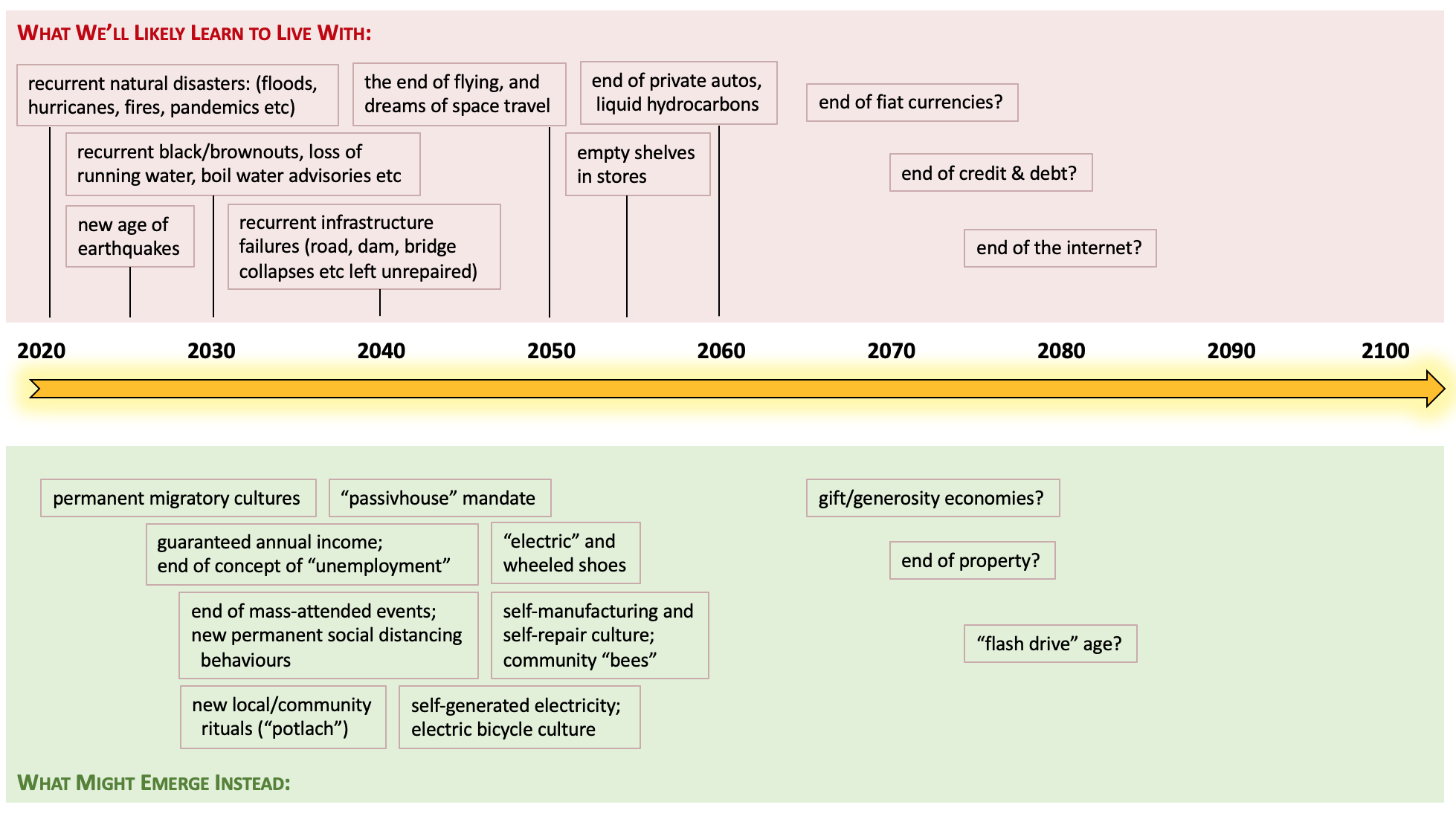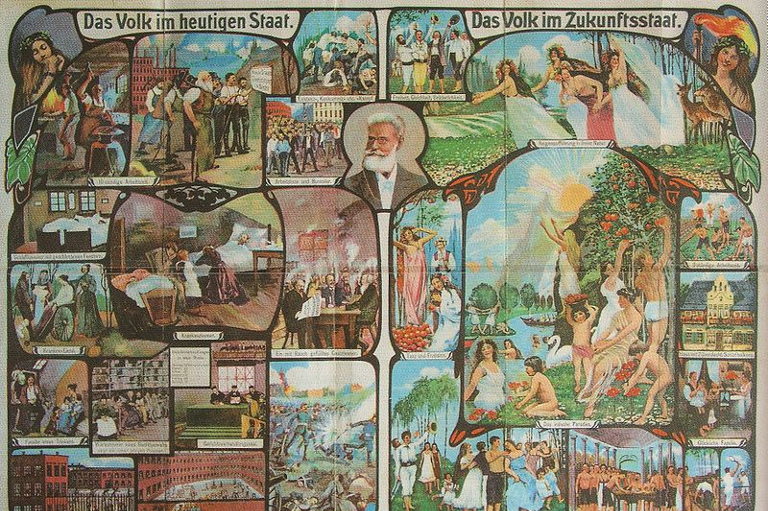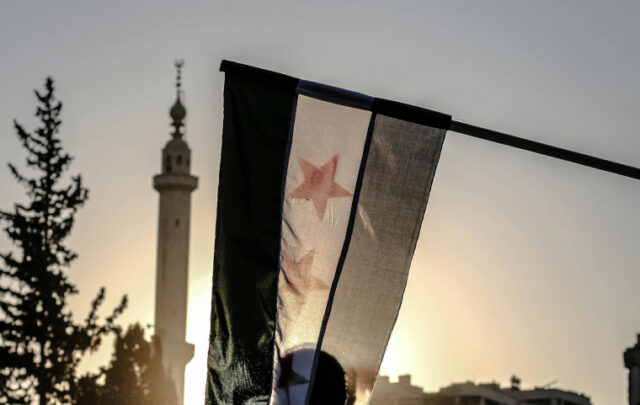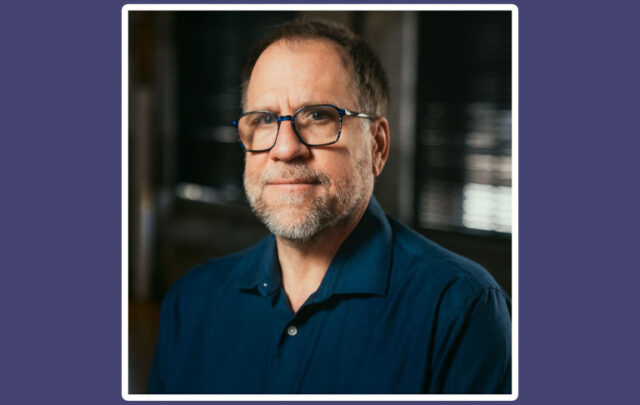
You know all that stuff that’s being written about the “return to normal” after CoVid-19? You know, the mainstream media’s endless blather about stock market indices and the “return to growth” (that indicates they still don’t appreciate that our all-for-the-1% “economic growth” must stop now to at least delay climate and ecological collapse, and that stock prices say nothing about the health of the economy or the well-being of the citizenry)? All of this unquestioned nonsense is the ultimate denial of the fact that the state of the planet and its trajectory in 2019 were actually truly awful, and unsustainable.
The zeal of the media for a return to life as it was in 2019 is a form of instant nostalgia. Nostalgia is longing for an idealized time in the past that never actually was. And it’s shared by conservatives (especially working class conservatives) and progressives (wanting to put the pandemic ‘behind us’ so that the absurd, impossible dream of steady progress towards a world of equity and affluence for all humans can once again be strived for).
I am told that in the aftermath of WW2, most people were so fed up with war and its miseries that they turned away from historical programs and novels and post mortems about the war, in favour of pre-war content. Holding on to the myth of progress dictated that they view the war as an anomaly, a blip in the inevitable path towards a better future. We are doing the same today.
But just as wars have continued unabated (though mostly, and conveniently, unreported), so too will pandemics continue henceforth, and they will become more and more common, and sometimes much more severe than CoVid-19, because we have done, and will do, nothing to address their underlying causes (factory farm proliferation, exotic animal harvesting, encroachment into the world’s last wilderness areas, and human overpopulation). We continue to act as if, like WW2, CoVid-19 was just an anomaly, a blip. We long to once again read novels and watch programs where people gather together, sometimes in huge numbers, uncovered, unprotected, and fearless. This is completely understandable (“human kind cannot bear very much reality”), and it is sheer folly.
When the next pandemic hits, or the next global drought, or the hurricane, firestorm or earthquake that kills hundreds of thousands and requires the permanent abandonment of some major city, will we continue to try to fabricate our narrative around the myth of perpetual progress, or will there be a reckoning?
As someone who’d prefer to know the truth rather than live a more comfortable lie, I try to imagine how our behaviours, and the way they’re reflected in our literature and popular media programming, may change to accommodate permanent shifts in the reality of our lives and our social fabric. Such change is a challenge, because our dominant narrative is of linear progress where the only options ‘going forward’ are either “like today, only more so”, or a “slipping back” to invented horrible times before the current Golden Age, full of Mad Max barbarism.
We simply cannot hear that prehistoric humans lived full, long (except when they were eaten by predators), healthy, low-stress, mostly peaceful lives, in balance with the rest of life on Earth. We have to believe that pre-civilization life was miserable, desperate, an endless, ghastly struggle to prevail over “Nature, red in tooth and claw”.
Being linear thinkers in an age of great imaginative poverty, we also can only imagine future dystopias that resemble this fictional horrific past. Most of the so-called “cli-fi” (climate science fiction) I have read is almost unbearable to endure, refusing to accept any possibility that a world without today’s modern technology could be anything but a backwards replay of the old wild west, dark ages, or ice ages.
We also have this myopic and misinformed habit of viewing all our problems as being acute (painful but short-lasting, and potentially ‘curable’, like an infection), when most of what we’re now dealing with are predicaments that are chronic (recurrent and likely life-long, and mostly incurable, like most autoimmune diseases). The climate and ecological ’emergency’ isn’t like a war that will end; it is a new and essentially permanent feature of the human condition.
If we were to try to create a forward-looking narrative that was less irredeemable, less linear, and less Hollywood-black-and-white, we might start by assessing some of the things we will, of necessity, relearn to deal with, and to do without. I’ve tried to do this in the timeline in the graphic above. But rather than see these necessary changes as inevitably causing lasting and unbearable suffering, I’ve tried to see them as opportunities for our once-imaginative, once-adaptable species to flex its resiliency and creativity muscles, and turn the challenges to our collective advantage. You know, better without the fucking build back.
So, for example, I think we’re entering a long period when major ‘natural’ disasters are going to become so frequent that it will not be possible to insure against them or to recover from them. When huge swaths of land are devastated by mega-hurricanes, state-sized firestorms, tsunamis, floods, and endless series of earthquakes (we are long, long overdue for an era of major seismic turbulence), we will simply have to abandon our fragile human settlements and relearn to live as ‘migrants’, perhaps permanently.
There are already hints of this in the patterns of migratory farm workers, “temporary” tech workers, and domestics and nurses from south and southeast Asia. Settlement is an incredibly expensive and hard-to-maintain lifestyle, and the larger the urban agglomeration, the more vulnerable it is, and the more dependent it is on ever-more-complex infrastructure and technology, and on cheap hydrocarbon fuels. Infrastructure in many areas that was not built to last centuries is quickly crumbling, and there is simply no money to replace it.
But there is no reason why a migratory lifestyle should have to be miserable. We were gatherer-hunters for most of our million years on the planet, and being a nomad, free to move and find sustenance anywhere, could be liberating. The coming generations of migrants, rather than being ‘refugees’, might actually be models for living a joyful, sustainable life in an age of sufficiency. They will of course face conflicts with existing “land-owners”, as there are no frontiers left on our horribly-overpopulated planet, but there is no reason why these can’t be resolved.
We are likely to learn, quite soon, not to be able to depend on electricity and clean water 24/7. These are our most vulnerable infrastructure-dependent resources, and we will discover, as millions have before us, how to adapt to interruptions. This will just become part of how we live, and we’ll figure it out. One of the ways we may do so is through self-produced electricity, using a mix of solar, wind and human pedal-powered sources to generate the electricity we want when the grid goes down. That could be good for us and the environment.
My sense is that we will soon have a lot more time to do useful things for ourselves because CoVid-19 has smashed the myth that most people’s labour is necessary for anything other than providing a face-saving means to funnel even more wealth from the poor to the rich. Introducing a guaranteed annual income, distributed as a “negative income tax”, would allow sufficient redistribution of spending power to allow all of us, at least in affluent nations, to live comfortably without getting into un-repayable debt, and it would not be complicated. It would mean most people would no longer have to do their bullshit jobs, and their time would be freed up to make and fix things for themselves, grow their own food, and unschool their children. The idea of a “job” (ie voluntary servitude), and of “unemployment” (which are both recent inventions) could then become the stuff of history.
I know enough about epidemiology that I would be really surprised if another decade goes by without at least one or two serious global pandemics, and it is probable that the next one will be a “bird flu” (most likely an H7N9 variant) that will hit those with healthy immune systems hardest (like the second wave of the 1918 pandemic), and cause tens of millions of deaths. So we will likely have to get used to “permanent” social distancing behaviours. (I would therefore recommend you divest of any shares you have in sports arenas and rave clubs.) I think we will become very innovative once we get past seeing pandemics as an acute problem and start to appreciate them as a chronic predicament, an ongoing feature of modern human life. We will probably invent and learn to use masks that are less obvious and intrusive, and come to use them much as any other item of clothing that serves a purpose. And we’ll start to view massive concentrations of human numbers in one place as health hazards, and find ways to joyfully ‘commune’ that don’t require crowding.
Hopefully this learning will also help us realize the absolute insanity of factory farming, and ban it. But I don’t suspect it will.
And my guess is that, in lieu of going to social activities arranged for us by others, we will rediscover how to engage socially with each other in community through a variety of more useful, self-initiated activities — potlucks and potlaches, book circles, ‘sewing’ circles, sharing circles, fix-it fairs, learning circles, neighbourhood work ‘bees’, and other ways of usefully and joyfully socializing with each other that are yet to be invented.
Soon after that, I predict that other types of infrastructure — roads, bridges, dams etc — will just become too expensive to maintain, and when they become unsafe or impassible they will simply fall into disuse. That, along with the end of affordable hydrocarbons in a crumbling economy (a supply/demand curve with no point of intersection), will produce a rapid shift away from liquid hydrocarbons and from electricity produced by burning them.
That will mean, first, the end of commercial aviation, and soon thereafter, the end of the personal automobile and affordable home heating and air conditioning. But, except for aviation (and our delusional, profligate dreams of space travel), there are creative solutions for these changes, too: Electric bicycles, powered by self-produced electricity rather than the grid, may well be able to navigate roads that become impassable for cars. A passivhaus mandate for every building, especially using the latest iterations, might allow us to eliminate the need for furnaces and air conditioners. And we might learn from skateboarders and rollerbladers that wheels on our shoes, which were briefly popular a generation ago, might make walking a much more viable option, especially if we’re able to innovate some electric-assist for our footwear as well.
The end of cheap hydrocarbons will also mean that most international and other long-distance freight transportation will become unaffordable. And that will mean a lot of empty shelves in our stores, which will give us even more motivation to learn to make and repair our own things.
We will likely face lots of crises and predicaments in the coming years that will be novel — we don’t even know yet what they might be. I’ve guessed at a few of them in the upper right part of the graphic above, but I might be completely wrong about them. I have a track record of being approximately right in my predictions, but way off in when they would happen (much later than I thought). I might explore some of them in another post.
It’s going to be a challenging next half-century, the adventure of all our lives. And we can do this — though not by falling back to past lifestyles, but rather by using what we’ve learned in the past two centuries to do what we do, and what we will learn to do, much more efficiently and effectively. Not by seeking a “return to normal”, but by moving past our wasteful, untenable and inequitable “normal” to a more resilient and adaptive way of living.
There was nothing wonderful, and nothing “normal”, about 2019. Instead of longing for a return to some idealized past that never was, I am full of anticipation for a completely abnormal, tumultuous, perilous, and precarious future. Let’s see what we can do.
Graphic: Depiction of people in today’s society versus in tomorrow’s society. Illustration in a book by Friedrich Eduard Bilz: “Der Zukunftsstaat. Staatseinrichtung im Jahre 2000.” (1904) via Wikimedia Commons https://commons.wikimedia.org/wiki/File:Illustration_Das_Volk_im_Zukunftsstaat_1904_001.jpg





